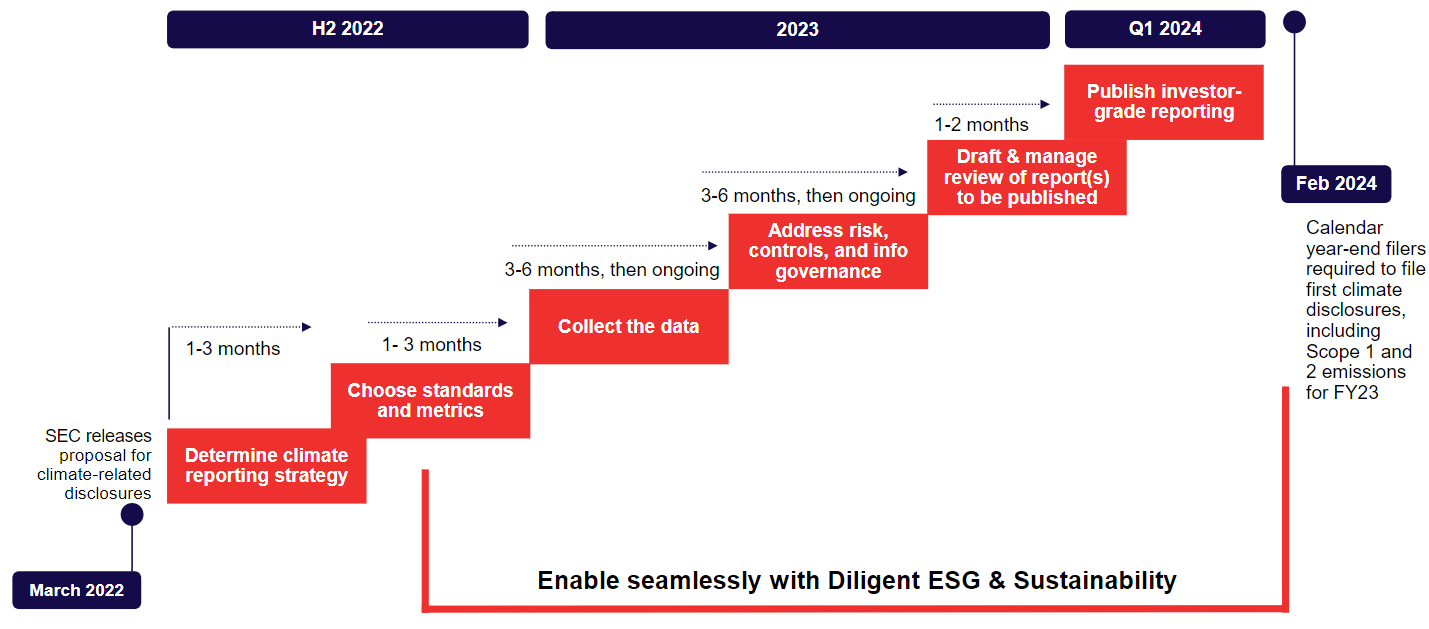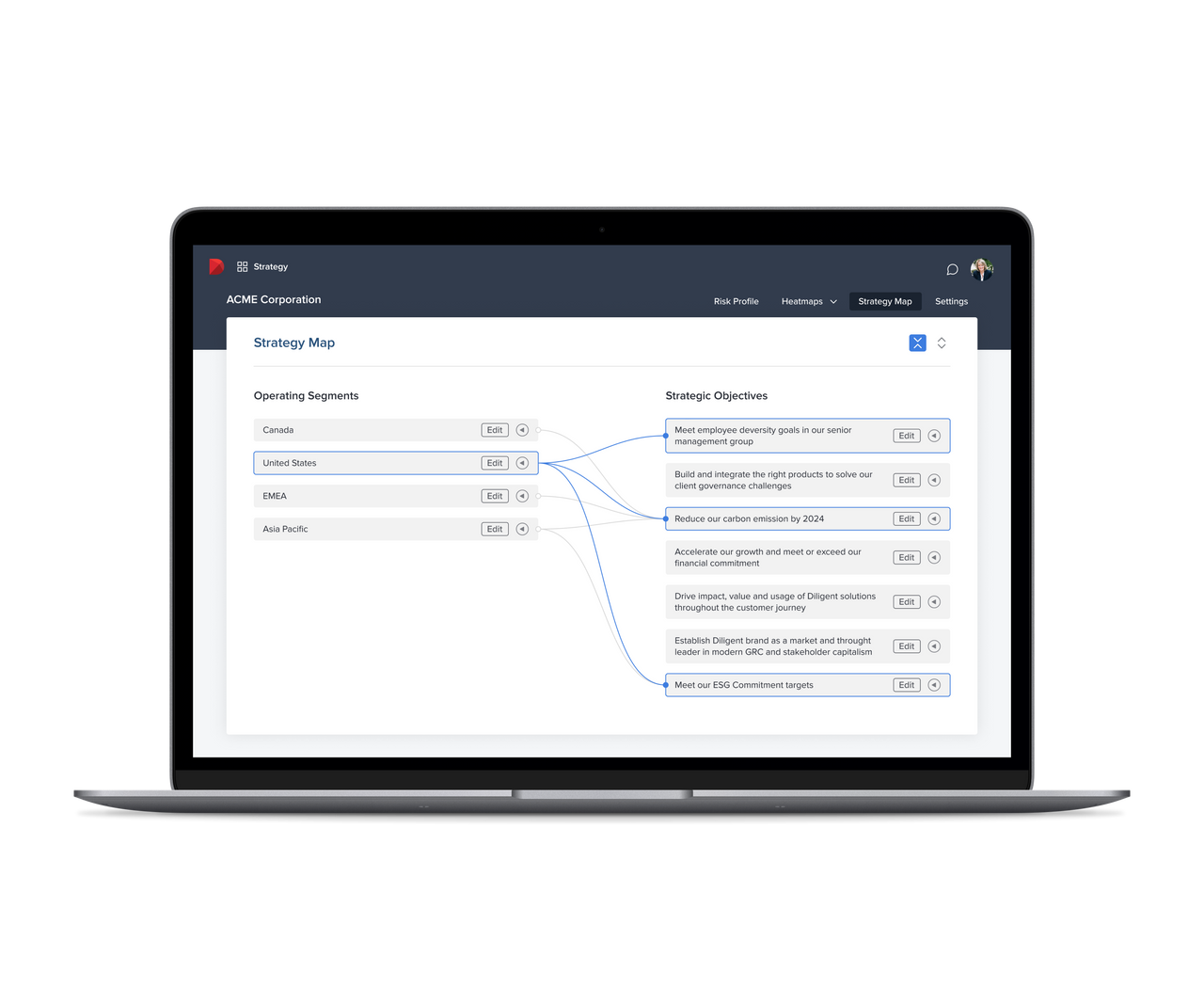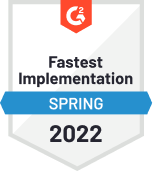The SEC Climate Disclosure Ruling Is Coming: Prepare!
With new upcoming rulings by the U.S. Securities and Exchange Commission (SEC), publicly traded companies are required to list their Scope 1 and Scope 2 greenhouse gas (GHG) emissions.
New SEC Climate Disclosures include:
- Prospective risks and material impacts on the business, strategy and outlook caused by climate change
- Scope 1 and 2 greenhouse gas (GHG) emissions
- Scope 3 emissions if material or if the registrant has set a GHG emissions reduction target
- Additional qualitative and quantitative climate risk disclosures
- SEC HAS RULED
- Who is Impacted
- sec Requirements
- How to Prepare
The U.S. Securities and Exchange Commission (SEC) announced its climate disclosure proposal back in March 2022, promising a pivotal change in how businesses would have to treat climate-related risks across their operations. This new new climate disclosure rule would force companies to report on their greenhouse gas emissions and environmental impact, alongside their financial data.
This includes information about climate risks that are likely to have a material impact on their business, results, or financial condition. Moreover, SEC proposes to add climate-related financial statement metrics to their audited financial statements.
It's now official & calls for large companies to obtain assurance from an independent third party that their emissions disclosures are accurate, and provide information on any Scope 3 emissions that are deemed material to their business.

The new ruling calls for publicly listed U.S. companies to outline the Scope 1 and Scope 2 emissions that result from their operations. Large companies will also have to obtain assurance from an independent third party that their emissions disclosures are accurate and provide information on any Scope 3 emissions that are deemed material to the business.
Other frameworks soon followed the SEC’s announcement, such as the Corporate Sustainability Reporting Directive (CSRD), with its own sustainability reporting requirements for organizations that do business in the European Union.

The new rules also require a registrant to disclose information about its direct greenhouse gas (GHG) emissions (Scope 1) and indirect emissions from purchased electricity or other forms of energy (Scope 2). In addition, a registrant would be required to disclose GHG emissions from upstream and downstream activities in its value chain (Scope 3), if material or if the registrant has set a GHG emissions target or goal that includes Scope 3 emissions.
These new proposals for GHG emissions disclosures provide investors with decision-useful information to assess a registrant’s exposure to, and management of, climate-related risks, and in particular transition risks. The new rules provide a safe harbor for liability from Scope 3 emissions disclosure and an exemption from the Scope 3 emissions disclosure requirement for smaller reporting companies.
Under the new rule changes, accelerated filers and large accelerated filers would be required to include an attestation report from an independent attestation service provider covering Scopes 1 and 2 emissions disclosures, with a phase-in over time, to promote the reliability of GHG emissions disclosures for investors.

If you are not currently reporting on climate data you need to get started now. Take a crawl, walk, run approach and with the help of Diligent, you can do this easily and effectively.
Consider the list below to get you started:
ADOPT GHG ACCOUNTING BEST PRACTICES: An essential first step toward tracking and reporting your GHG emissions is understanding the basics of GHG accounting, which is very similar to carbon accounting. Make sure your organization keeps detailed, digital records of its Scope 1 and 2 emissions
START MEASURING AND ASSESSING SCOPE 3 EMISSIONS NOW: According to the SEC’s proposal, larger companies will only be required to disclose their Scope 3 emissions if those emissions are deemed financially material to the business (with “material” meaning relevant when making an investment decision).
ENSURE YOUR REPORTS ARE AUDIT-READY: If your business is among those required to have their disclosures verified by an independent third party, make sure your reports are in an audit-friendly format.
CHECK FOR OVERLAP WITH OTHER RELEVANT FRAMEWORKS: Between guidelines from the Sustainability Accounting Standards Board (SASB), Global Reporting Initiative (GRI), the Task Force on Climate-Related Financial Disclosures (TCFD) and others, the SEC’s proposed rule is just one of many emerging frameworks that your organization may be subject to.
MAINTAIN DASHBOARDS: Maintaining a dashboard of your key GHG accounting and sustainability KPIs (total emissions, Scope 1, 2 & 3 emissions, and their change over time) can also help you to identify areas of overlap.

Diligent ESG Can Help You Prepare For The SEC Ruling!
Diligent checks all of these boxes and more when it comes to the SEC's new Climate Disclosure ruling. Our solution presents a single source of truth that can help your organization easily generate accurate sustainability reports by automatically collating your data. Access dozens of pre-built, auditable reports to save time and cut auditing costs related to emissions reporting.
Diligent’s ESG solution offers:
- Automated and auditable data collection, cleansing, analysis and reporting across over 2,000 fuels and business activities, including all Scope 1, 2, 3, CSR and supply chain data sources
- Automated checks for data anomalies and completeness
- 80 pre-built audit-ready reports, so there’s no need to create and configure new templates
- The ability to personalize your reporting and dashboards to reflect the formats and needs of your business (whether you’re reporting for the SEC or other regulations)
Moreover, this carbon accounting software will help you build transparency and maintain stakeholder trust through comprehensive and reliable greenhouse gas reporting.
Take the next step to prepare for the new SEC Climate Disclosure ruling.
SEC Climate Disclosures Resources











